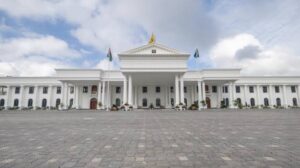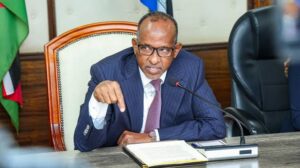Newly released records from the Controller of Budget have revealed that State House withdrew Sh3.6 billion within only 42 days to cover travel, conferences, and high-level meetings.
The disclosure has stirred public debate, with many Kenyans questioning the priorities of the government at a time when citizens are struggling to make ends meet. The report shows that the spending spree took place between June and mid-July, a period marked by frequent foreign trips, international summits, and a series of political engagements that demanded significant resources.
According to insiders, much of the money went into chartering private flights, covering accommodation for large delegations, and meeting the logistical costs of international travel by the Head of State.
Hosting dignitaries also drained a huge amount, with several millions being spent on hiring venues, arranging state banquets, and providing luxury services for visiting leaders.
These revelations come against the backdrop of an already difficult economic situation, where the ordinary citizen is battling a weak shilling, rising commodity prices, and newly introduced taxes that have pushed many families to the edge.
Critics of the government have been quick to point out the contrast between official calls for austerity and the reality of extravagant State House spending.
Civil society groups have openly demanded accountability, arguing that such large withdrawals in such a short period cannot be justified. They have raised concerns about whether the spending aligns with national priorities, given the pressing social and economic challenges facing the country.
One governance activist put it bluntly, saying that Kenyans are tightening their belts daily, yet billions are being poured into luxury travel and endless meetings, which amounts to fiscal indiscipline of the highest order.
On the other hand, officials close to the Presidency have defended the expenditure, framing it as a necessary cost of diplomacy and international visibility. They argue that in the modern global arena, presence and participation in key summits come at a price, but the returns are long-term and beneficial to the country.
According to a senior State House official, the President is positioning Kenya as a key player in international trade, security cooperation, and partnerships, and these investments will pay off in the future even if they appear costly now.
Despite these assurances, the revelation has deepened public anger over government spending. Many Kenyans see this as another example of misplaced priorities, where leaders continue to enjoy privilege while ordinary citizens face tough times. There are growing calls for Parliament to step in and place strict limits on State House expenditure, with demands for full transparency on how taxpayer money is used.
For many, this case represents the larger problem of unchecked government extravagance at the expense of struggling citizens, and the debate is unlikely to fade any time soon.





















Add Comment